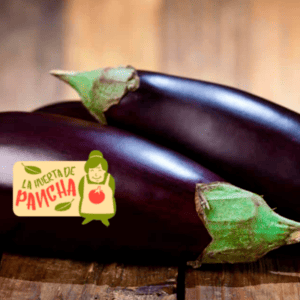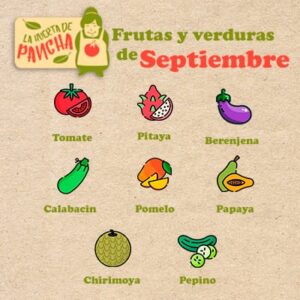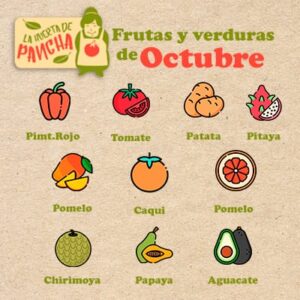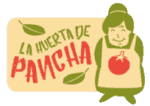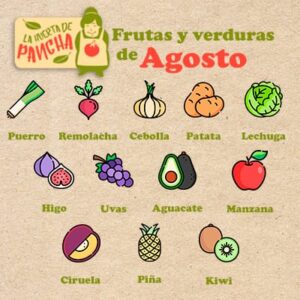
Benefits of consuming organic fruits and vegetables
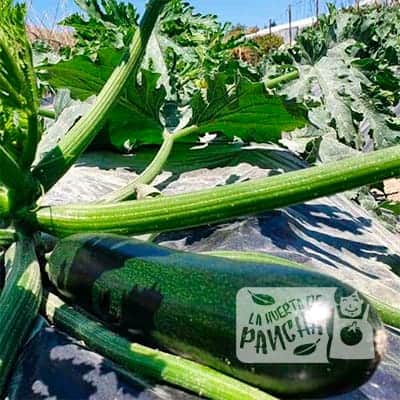
Nowadays, more and more people are concerned about eating a healthy and environmentally friendly diet. In this context, organic fruits and vegetables have become an increasingly popular and demanded option.
In this article, we will explore the many benefits of consuming organic fruits and vegetables, and discover why they are a smart choice for our diet and for the environment.
What are organic fruits and vegetables and how are they grown?
Organic fruits and vegetables are considered to be those agricultural products that are grown following environmentally friendly practices and without the use of synthetic chemicals such as pesticides, herbicides or artificial fertilizers. These are products that are grown in a sustainable manner.
One of their main characteristics is that they do not use aggressive techniques to accelerate growth or extend the shelf life of the products.
In terms of cultivation, it is characterized by sustainable and environmentally friendly agricultural practices. For example, the use of natural fertilizers, such as compost, manure or vegetable waste, stands out. Natural methods are also used to control pests, such as crop rotation, the use of insect repellent plants or the introduction of beneficial insects. Another of its characteristics is the efficient use of water, with techniques such as drip irrigation. Finally, he emphasizes that this type of cultivation does not use non-modified seeds.
Differences between organic farming and conventional farming
Conventional and organic farming are two types of approaches to growing food. These are approaches that vary greatly from each other, and have a large number of differences. These are some of them.
- In conventional agriculture, synthetic pesticides and chemical fertilizers are used to control pests and promote plant growth. Organic farming, on the other hand, avoids the use of chemicals and focuses on natural practices to control pests and improve soil fertility.
- In terms of soil control, conventional agriculture uses intensive tillage techniques that can damage the soil and reduce its fertility in the long term. However, organic farming promotes the use of soil conservation techniques, such as crop rotation or the use of organic fertilizers.
- Conventional agriculture tends to grow large areas of a single crop, which can reduce biodiversity. In organic farming, on the other hand, crop diversity and the integration of natural elements, such as hedgerows and habitat areas, are encouraged to promote ecological balance.
Certification of organic production
Organic production certification is a process by which it is verified and guaranteed that agricultural products or foodstuffs have been produced according to the standards and principles of organic agriculture.
To obtain organic production certification, farmers must comply with a series of requirements, which have been established by recognized certification bodies. Some of these requirements are the use of sustainable production methods, the prohibition of synthetic chemicals, protection of biodiversity and animal welfare.
Nutritional advantages of consuming organic fruits and vegetables
Organic fruits and vegetables bring a lot of nutritional benefits to food. These advantages are listed below:
- Higher nutrient content: these fruits and vegetables tend to have a higher nutrient content compared to those from conventional agriculture. This is because they are grown in soils richer in nutrients and the soil is cared for.
- Lower pesticide content: when we consume traditionally grown fruits and vegetables, the food is contaminated with synthetic pesticides, which contain a large amount of toxic chemicals. Therefore, by consuming organic fruit and vegetables, this amount is reduced.
- Higher phytochemical content: phytochemicals are bioactive compounds found in plants that have antioxidant and anti-inflammatory properties; organic fruits and vegetables have a higher phytochemical content compared to conventional ones.
- Lower nitrate content: unlike phytochemicals, nitrates in high amounts can be harmful to health. Nitrates are present in synthetic pesticides, and organic farming avoids them, so it is also a point in favor of this type of farming.
In short, organic farming has a lot of health benefits, so it is more than recommended.
Impact of green consumption on the environment
Organic farming has a very positive impact on the environment, and this is due to some of the following reasons:
First, growing organic food reduces soil, water and air pollution, as well as the exposure of farmers and consumers to toxic substances.
Secondly, crop diversity and the conservation of local varieties are promoted.
Finally, organic farming uses soil conservation practices, which help maintain fertility and prevent erosion.
How to get organic fruits and vegetables
There are several options you can go to for organic fruits and vegetables. For example, farmers’ markets, natural and organic food stores, community gardens or online shopping from greengrocers who deliver organic produce directly to your door, as is the case of the Pancha’s Orchard.


